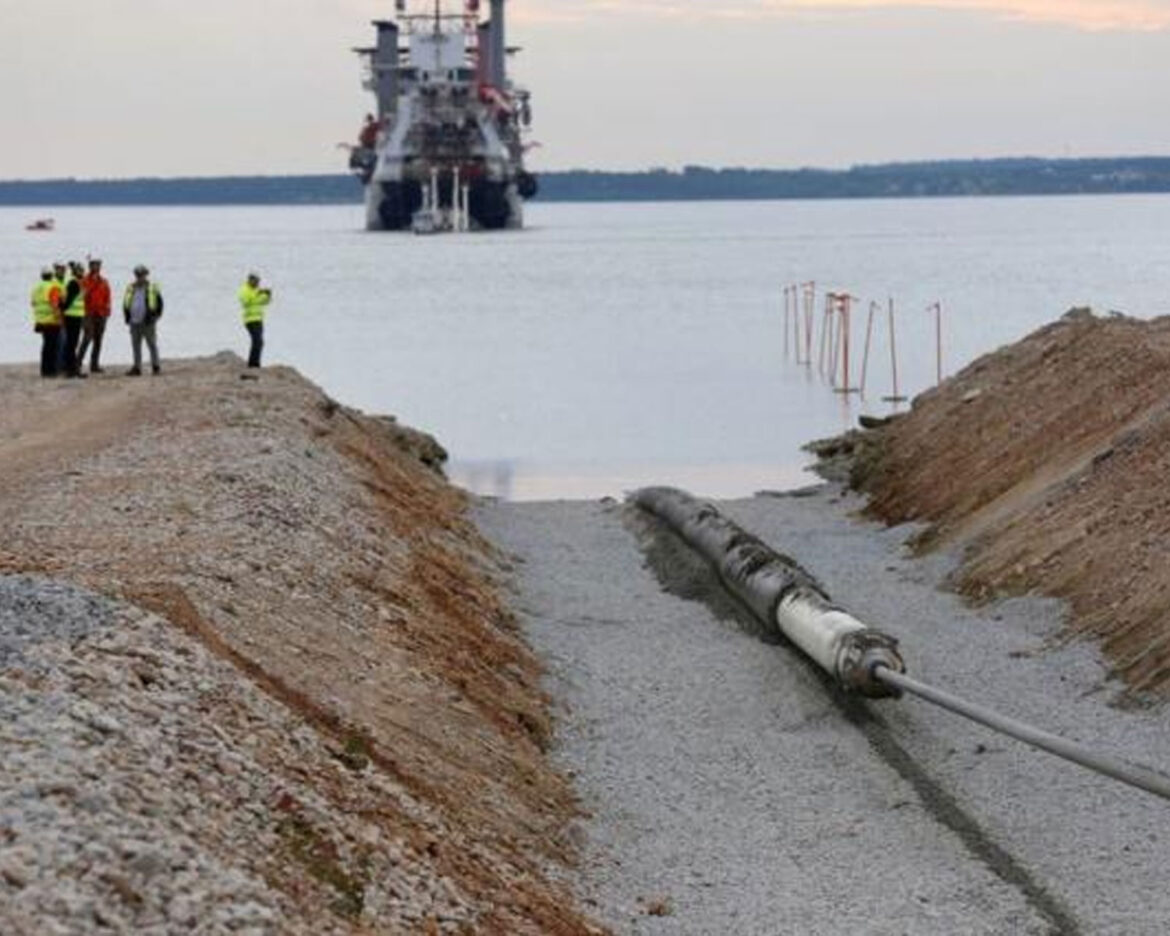Helsinki, Finland – Finnish authorities announced on Tuesday that the damage to a Baltic Sea gas pipeline earlier this month is believed to have been caused by a ship dragging a large anchor along the seabed. However, it remains uncertain whether this incident was an accident or a deliberate act of sabotage.
On October 8, the Balticconnector subsea gas pipeline, as well as two Baltic Sea telecoms cables, were damaged by external mechanical force. Investigators have been working to determine whether this damage was a result of intentional sabotage or a mishap at sea.
The investigative team has successfully retrieved a lost anchor from the seabed at the location where the pipeline ruptured. They are now looking into whether this anchor belongs to the Chinese container vessel known as the “NewNew Polar Bear,” which was in the vicinity at the time of the incident.
Broad drag marks on the seabed were observed leading up to the point where the pipeline was damaged, with the anchor found immediately after the rupture. A narrower path of disturbance extended for dozens of miles on the seabed, indicating a significant impact. Notably, a piece of the anchor, one of its two spikes, was found broken.
Robin Lardot, the chief of the National Bureau of Investigation (NBI), highlighted that the key questions revolve around whether the damage was intentional, a result of negligence, or poor seamanship, and whether there was any underlying motive. He emphasized that it is still too early to provide definitive answers.
The NBI’s investigation is currently focusing on the NewNew Polar Bear container vessel. They have confirmed that the vessel was missing one of its front anchors and have made unsuccessful attempts to contact the ship’s crew to inquire whether this is the same anchor retrieved in the Gulf of Finland.
The Chinese government has called for an “objective, fair, and professional” investigation into the pipeline damage.
This incident led to a disruption in gas supplies to Finland. However, Finland is managing with liquefied natural gas imports via ship deliveries to its Inkoo port. As a result of the damage, NATO has increased its patrols in the Baltic Sea.
This incident in the Baltic Sea brings to mind a similar situation in September 2022 when the larger Nord Stream pipelines connecting Germany and Russia were damaged by explosions, which authorities determined to be deliberate acts of sabotage. However, the perpetrators behind that attack remain unidentified.



